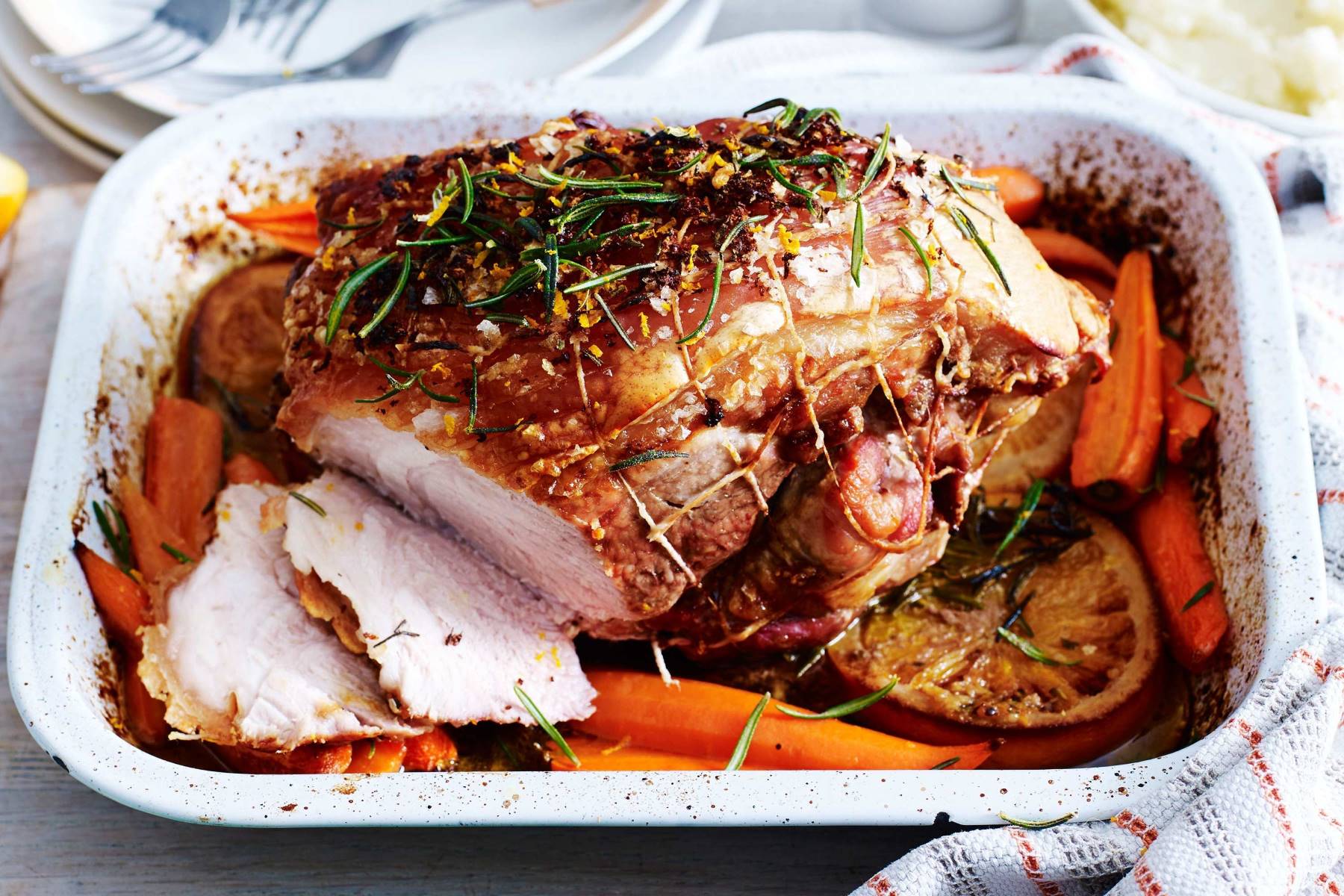
When it comes to hearty and delicious main course options, pork roast is a popular choice among food enthusiasts. Whether it’s a succulent pork loin or a tender pork shoulder, this delectable cut of meat never fails to impress. But besides its incredible taste and versatility, it’s essential to understand the nutritional value that pork roast brings to the table.
In this article, we will explore 10 fascinating nutritional facts about pork roast, shedding light on its macronutrient composition, vitamins, minerals, and health benefits. Whether you’re a fan of Sunday roasts or looking for a protein-packed option, these nutritional facts will help you make informed choices about including pork roast in your diet and reaping its many benefits.
Key Takeaways:
- Pork roast is a protein powerhouse, helping muscles grow and keeping our immune system strong. It’s also packed with vitamins and minerals that support overall health and well-being.
- Pork roast is a versatile and delicious option that provides essential nutrients like iron, healthy fats, and amino acids. It’s a great choice for building strong bones and supporting brain function.
High in Protein
Pork roast is a great source of protein, with approximately 26 grams of protein per 3-ounce serving. Protein is essential for muscle growth and repair, as well as for maintaining a healthy immune system.
Rich in Vitamins
Pork roast is packed with various vitamins, including vitamin B12, which is important for neurological function, and vitamin B6, which aids in metabolism. It also contains niacin, riboflavin, and thiamine, which contribute to overall health and well-being.
Provides Energizing Iron
Pork roast is a good source of iron, a mineral necessary for carrying oxygen throughout the body. Iron helps prevent iron-deficiency anemia and promotes energy production.
Contains Essential Minerals
In addition to iron, pork roast contains other essential minerals like zinc, phosphorus, and selenium. These minerals play a vital role in various bodily functions, from supporting bone health to boosting the immune system.
Low in Carbohydrates
For those following a low-carb diet, pork roast is a great choice as it contains minimal carbohydrates. This makes it an excellent option for individuals looking to manage their blood sugar levels or maintain a ketogenic lifestyle.
A Good Source of Healthy Fats
Contrary to popular belief, pork roast can offer healthy fats, including monounsaturated and polyunsaturated fats. These types of fats are essential for heart health and overall well-being.
Helps Build Strong Bones
Pork roast is rich in phosphorus, a mineral that works with calcium to strengthen bones and teeth. Including pork roast in your diet can contribute to maintaining healthy bone density and reducing the risk of osteoporosis.
Provides Essential Amino Acids
Pork roast is a complete protein source, meaning it contains all the essential amino acids that our bodies need for growth, repair, and overall health. These amino acids are important for building and maintaining muscle mass.
Supports Brain Function
Pork roast is a good source of choline, an essential nutrient that plays a crucial role in brain development and function. Choline is also linked to improved memory and cognitive function.
Versatile and Delicious
Pork roast is not only nutritious but also incredibly versatile in the kitchen. Whether you roast it, grill it, or slow cook it, pork roast offers a delicious and satisfying meal option for any occasion.
Conclusion
In conclusion, pork roast is not only a delicious dish but also a nutritious addition to your diet. It is a rich source of protein, vitamins, and minerals, making it a great choice for meat lovers. However, it is important to consume it in moderation and opt for lean cuts to avoid excessive fat intake. Additionally, be mindful of the seasonings and cooking methods used to prepare your pork roast to keep it healthy. By incorporating pork roast into a well-balanced diet and maintaining a healthy lifestyle, you can enjoy its many nutritional benefits.
FAQs
1. Is pork roast a good source of protein?
Yes, pork roast is a great source of protein. It is packed with amino acids essential for muscle growth and repair in the body.
2. What vitamins are found in pork roast?
Pork roast is rich in various vitamins, including B vitamins like thiamine, niacin, and vitamins B6 and B12. These vitamins play a crucial role in energy production, nerve function, and red blood cell formation.
3. Does pork roast contain minerals?
Absolutely! Pork roast contains important minerals such as iron, zinc, selenium, and phosphorus. These minerals contribute to various bodily functions, including immune support, healthy bones, and cellular function.
4. How can I ensure my pork roast is healthy?
To make your pork roast healthier, choose lean cuts with minimal visible fat. Trim off any excess fat before cooking and opt for healthier cooking methods like roasting, grilling, or baking instead of frying. Avoid adding excessive salt or sugar in seasonings and sauces.
5. Can pork roast be part of a balanced diet?
Absolutely! Pork roast can be a part of a balanced diet when consumed in moderation. Pair it with a variety of vegetables, whole grains, and other nutritious foods for a well-rounded meal.
Was this page helpful?
Our commitment to delivering trustworthy and engaging content is at the heart of what we do. Each fact on our site is contributed by real users like you, bringing a wealth of diverse insights and information. To ensure the highest standards of accuracy and reliability, our dedicated editors meticulously review each submission. This process guarantees that the facts we share are not only fascinating but also credible. Trust in our commitment to quality and authenticity as you explore and learn with us.
